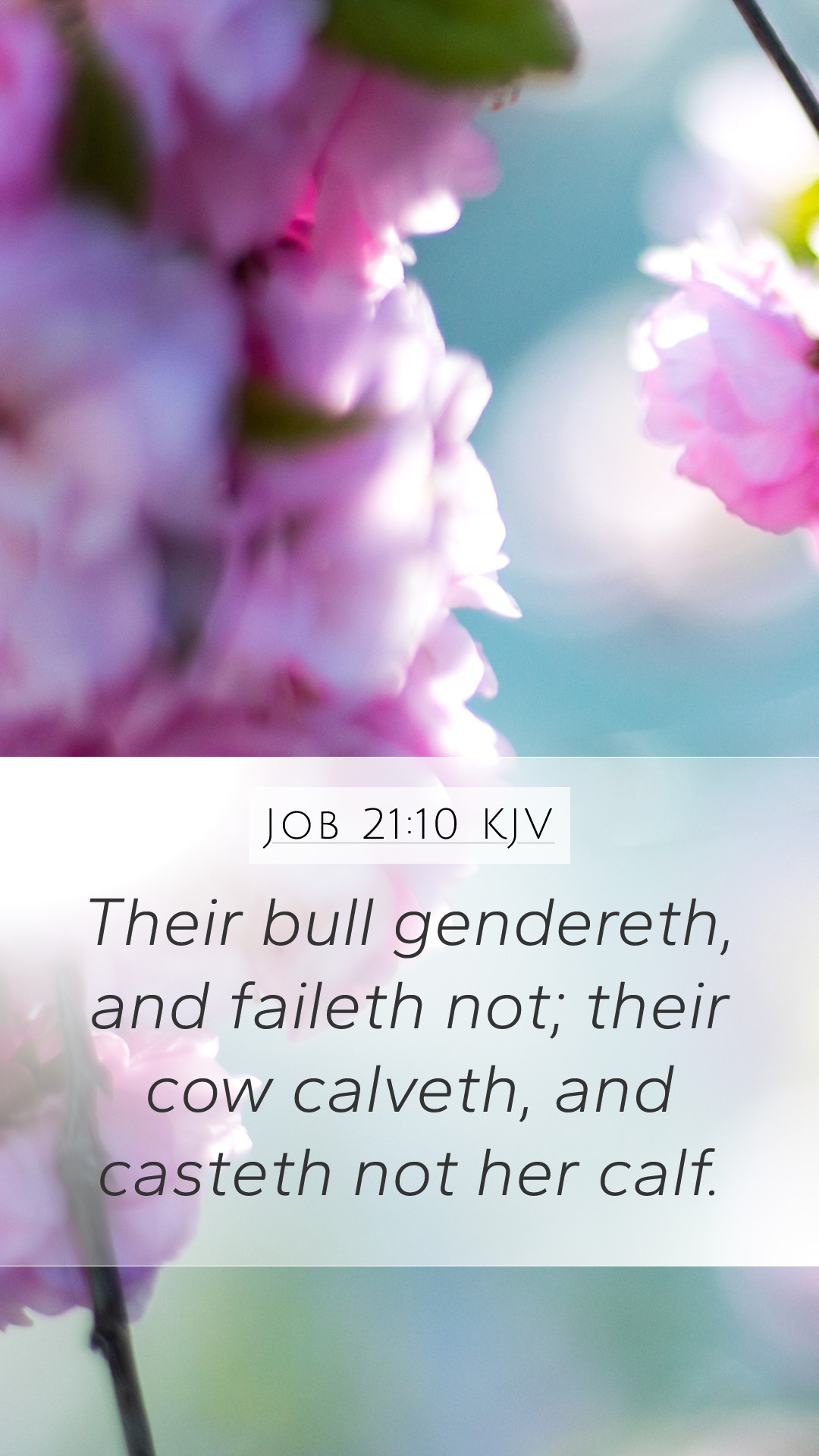Understanding Job 21:10: A Comprehensive Bible Verse Commentary
Job 21:10 states: "His bull gendereth, and faileth not; his cow calveth, and casteth not her calf." This verse is part of Job's response to his friends, asserting that despite their claims, the wicked often prosper.
Key Themes and Insights
- Prosperity of the Wicked: Job challenges the notion that the righteous are always rewarded and the wicked punished. This verse underscores the apparent worldly success of those who live unrighteous lives.
- Nature's Cycle: The imagery of the bull and the cow illustrates nature's continuity and the prosperity of the ungodly, emphasizing the contrast between God's justice and human perception.
- Questioning Divine Justice: Job's lament raises profound questions about God's justice in a world where the wicked thrive while the righteous suffer.
Bible Verse Meaning According to Commentaries
Matthew Henry's commentary emphasizes that Job points out the fallacy in the friends’ argument that prosperity is a sign of righteousness. He elucidates that the success of the wicked serves as a challenge to our understanding of divine justice.
Albert Barnes highlights that Job observes the bull and cow as symbols of fertility and success, suggesting that these blessings are enjoyed by the wicked in contrast to his own suffering. This presents a direct rebuttal to the idea that suffering is always a divine punishment.
Adam Clarke interprets this verse as a depiction of the great wealth and abundance enjoyed by the wicked, contrasting their prosperity with Job's trials. Clarke notes that Job is making a powerful argument regarding the inconsistency of their claims about divine retribution.
Historical Context
The Book of Job is set in a time when retribution theology dominated the understanding of God’s justice—where good is rewarded and evil punished. Job’s situation serves as a critique of this simplistic view, reflecting deeper issues of existential suffering and divine justice.
Related Bible Cross References
- Psalm 73:3-5 - Contemplating the prosperity of the wicked.
- Jeremiah 12:1-2 - Questioning God about the prosperity of the wicked.
- Malachi 3:15 - Addressing the perceived futility of serving God.
Application of Job 21:10 in Daily Life
Understanding scripture like Job 21:10 helps believers navigate the complexities of faith in the context of suffering. This verse nudges us towards a more nuanced view of divine justice that considers long-term spiritual perspectives over immediate circumstances.
Conclusion
Job 21:10 serves as a powerful reminder that the world is not always as it seems, particularly regarding God's justice. It challenges readers to reflect upon their understanding of biblical principles and the nature of prosperity, calling for deeper theological inquiry.
Bible Study Resources
For those engaging in online Bible study or in study groups, consider utilizing tools such as:
- Bible commentaries for deeper insights
- Bible study guides that include discussions on suffering and justice
- Bible study courses that offer comprehensive teachings on the Book of Job
Final Thoughts
The pursuit of understanding Scripture, particularly complex passages like Job 21:10, enriches one’s spiritual journey. By grappling with challenging texts, believers can cultivate a robust faith that acknowledges life's struggles while trusting in God’s ultimate justice.


